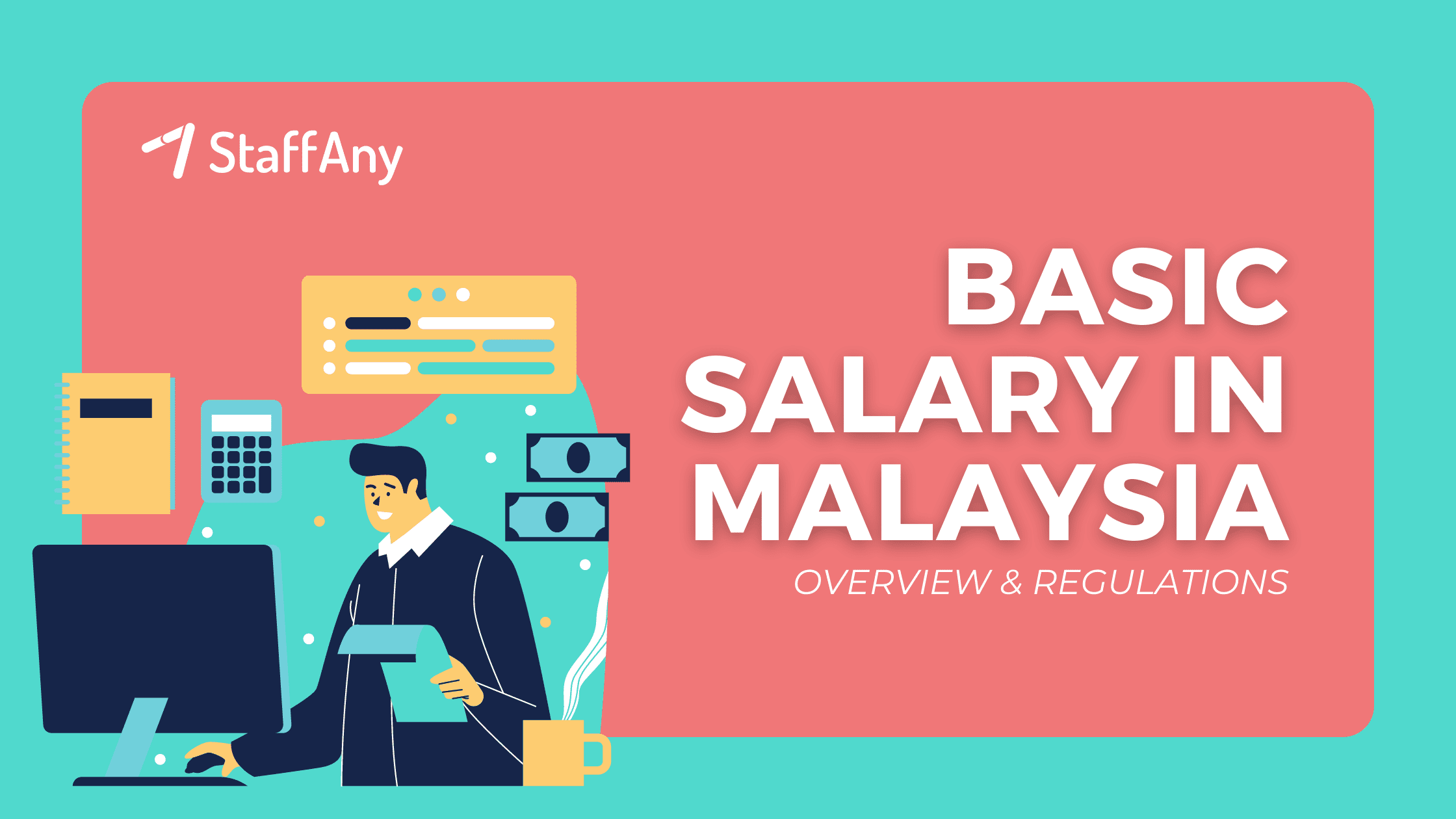As of 2023, Malaysia’s average salary in 2023 is around RM 6,590 per month or 1,485 US Dollars (according to the May 2023 exchange rate). However, this is just an estimated number and the actual numbers can be higher or lower and vary depending on the individual’s industry, job title, experience, and location.
For instance, the average basic salary in Kuala Lumpur is significantly higher than in other cities in Malaysia. It is important to note that the basic salary is just the starting point of an employee’s income, and they may be eligible for additional bonuses, allowances, and other forms of compensation.
Read more: What Is An Employee Management System?
Basic Salary Regulations in Malaysia
In Malaysia, there are strict regulations in place to ensure that employees receive a fair basic salary. The main regulation governing basic salaries in Malaysia is the Minimum Wages Order 2022, which sets the minimum basic salary that employers must pay their employees.
This order is reviewed periodically to ensure that employees are paid a fair wage and is updated accordingly.
a. The Minimum Wages Order 2022
Starting 1 May 2022, the Malaysian Minimum Wages Order 2022 has taken effect and raised the minimum monthly salary of workers to RM 1,500. The Order applies to all workers except domestic helpers, but there is a temporary exception for employers who have less than 5 employees until 31 December, 2022. This exemption, however, does not apply to employers engaged in professional activities.
Malaysia’s minimum wage policy itself is determined under the National Wages Consultative Council Act 2011 (Act 732). The National Wages Consultative Council, which is a tripartite body, is established to suggest the minimum wage rate to the government.
After the government gives its approval, the Minister of Human Resources issues a Minimum Wages Order.
The Minimum Wages Order was first introduced in 2012 and became effective on 1 January 2013. Then, it established the minimum wage rates for workers in West Malaysia at RM 900 per month and RM 4.33 per hour, and for those in East Malaysia at RM 800 per month and RM 3.85 per hour.
Prior to the Minimum Wages Order, Malaysia had the Wages Council Act 1947, which aimed to establish a standard for low-wage workers’ salaries. However, the act suffered from several drawbacks, such as infrequent revisions to the wage rate and lengthy and complicated processes.
Through the implementation of the Minimum Wages Order and the National Wages Consultative Act, the government now regularly evaluates the minimum wage every two years to ensure that workers receive appropriate compensation relative to the state of the economy.
Read more: A Complete Guide to Employee Benefits in Malaysia
b. Penalties for Failing to Meet Basic Salary Regulations in Malaysia
It is crucial for employers to abide by the Minimum Wages Order 2022 as failing to pay the minimum wage as outlined in the order constitutes a violation under Section 23 of the National Wages Consultative Council Act 2011.
If found guilty, the employer could face a fine of up to RM 10,000 for each employee they have failed to pay the minimum wage to.
Read more: HR Management Softwares, Privilege or Necessity
